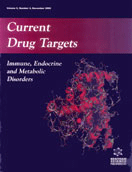Abstract
Over the past two decades significant progress has been made in elucidating the pathogenesis of thyroid cancer. The ongoing identification of mutations in cellular signaling pathways has revolutionized the field of thyroid cancer biology and has led to the development of novel new therapeutic agents. One of the signaling cascades implicated in the oncogenic process is the ERK pathway that normally functions to transmit mitogenic signals from the cell membrane to the nucleus. Genetic alterations of key components of this cascade, namely RET, Ras and Raf, are thought to result in constitutive activation of the pathway and subsequent thyroid tumorigenesis. Targeting of these components with pharmaceutical agents holds the potential of providing newer and more effective treatment modalities for thyroid cancer. Several such drugs are currently being developed to inhibit RET, Ras, Raf, as well as other factors impacted by the ERK pathway. These include a vast array of agents such as antisense compounds, small molecule inhibitors as well as inhibitors of farnesyl transferase, heat shock proteins, matrix metalloproteinases and histone deacetylases. Some of these drugs have already entered preclinical and clinical testing with promising anti-tumor effects. These as well as even newer agents may offer exciting possibilities for the future treatment of thyroid cancer.
Keywords: erk pathway, thyroid cancer, mitogenic signals, farnesyl transferase, heat shock proteins, matrix metalloproteinases
 1
1


















